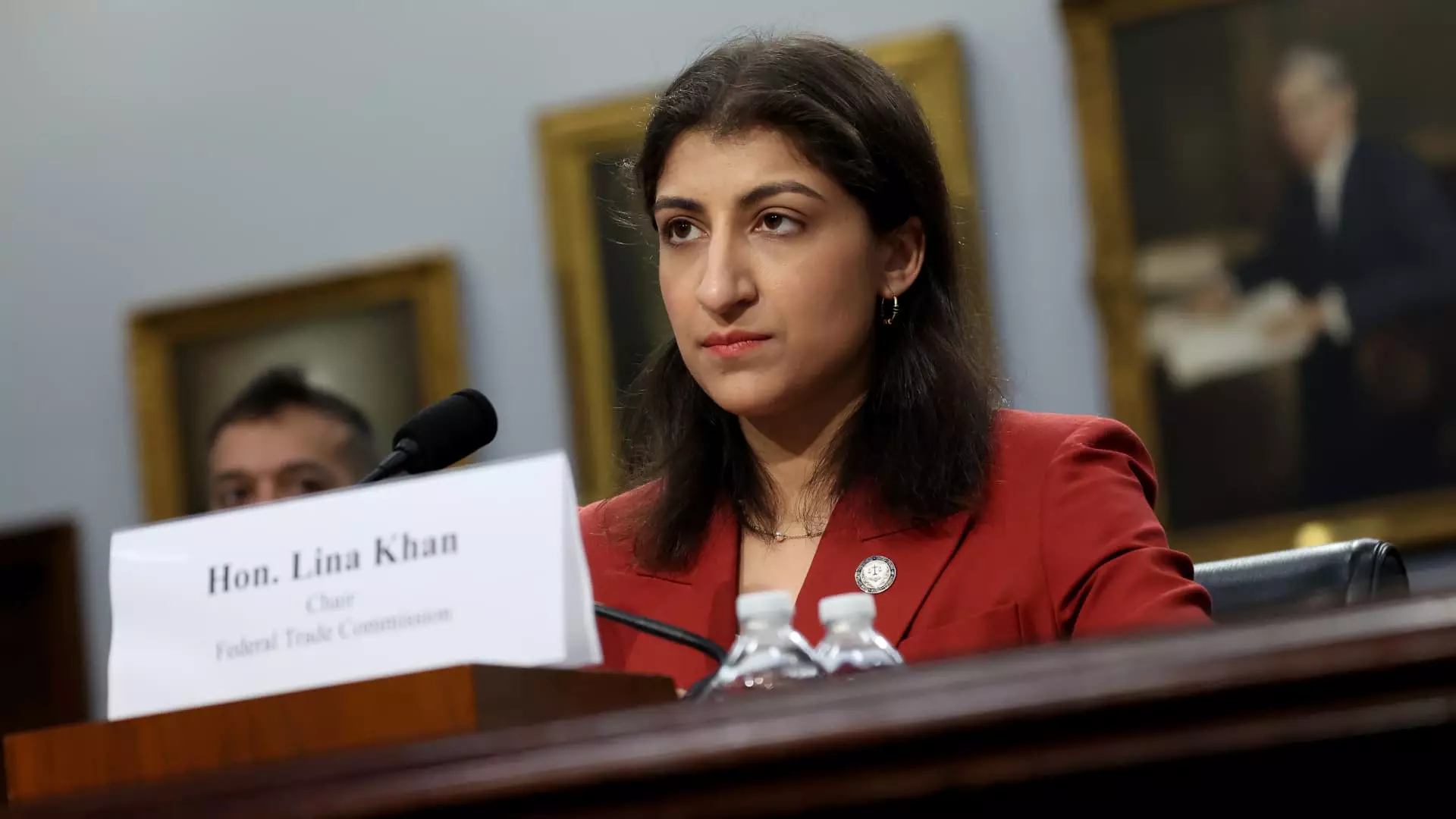On a momentous Friday, the Federal Trade Commission (FTC) took a significant step towards addressing the escalating insulin prices that have plagued many Americans for years. The FTC filed a lawsuit against three giant players in the pharmacy benefit manager (PBM) sector: UnitedHealth Group’s Optum Rx, CVS Health’s Caremark, and Cigna’s Express Scripts. These entities, which collectively manage around 80% of all prescriptions in the United States, have come under fire for their practices that ostensibly benefit their profits while severely burdening patients with high drug costs. This legal action shines a spotlight on the broader issues within the healthcare industry, particularly the role of intermediaries in the pricing of essential medications.
The lawsuit is not merely a reflection of isolated events; it represents broader systemic troubles within the health care framework. Patients suffering from diabetes—over eight million in the U.S.—are finding it increasingly challenging to afford their insulin medications. This situation is alarming, as many are forced to ration life-saving medication due to skyrocketing prices. The FTC’s proactive stance aims to address the underlying mechanisms contributing to these inflated costs and the disproportionate burden placed on vulnerable populations.
Pharmacy benefit managers act as intermediaries in the drug supply chain, negotiating with pharmaceutical companies to secure rebates for insurers, employers, and government health plans. These one-time negotiations should ideally benefit consumers; however, the FTC alleges that PBMs have created a “perverse” system that incentivizes high list prices for insulin. Instead of seeking the lowest prices for patients, PBMs favor medications with higher rebates, resulting in inflated list prices across the board. This conflict of interest seems to prioritize profits over patient well-being.
The agency‘s findings suggest that the PBMs not only reinforce this flawed pricing structure but also maintain a reluctance to promote cheaper alternatives. This troubling trend raises important ethical questions about the priorities of these corporations. A spokesperson from Caremark has argued against the FTC’s assertions, insisting they are committed to making insulin affordable. Yet, the FTC’s investigation paints a different picture, one that underscores a manipulative business dynamic benefiting corporate interests at the expense of patients.
The FTC’s accusations come amidst ongoing scrutiny of various players in the pharmaceutical sector, including insulin manufacturers Eli Lilly, Sanofi, and Novo Nordisk. These companies have been criticized for their role in perpetuating high list prices by bowing to pressure from PBMs for substantial rebates. This situation has led the FTC to signal potential future legal action against these manufacturers as well.
To contextualize this controversy further, it is essential to consider the history of insulin pricing in America. The costs associated with insulin have escalated dramatically over the past two decades. For instance, Eli Lilly’s Humalog insulin surged from a list price of $21 in 1999 to $274 by 2017—an increase of over 1,200%. Such a drastic inflation points toward a broken system, one that is in dire need of reform. The disparities in insulin costs highlight how U.S. consumers often find themselves paying two to three times more for prescription drugs than their counterparts in other developed nations, a fact lamented by health officials and emphasized in ongoing policy discussions.
Despite the complexities of the current healthcare landscape, the Biden administration has taken initial steps to address the challenges surrounding insulin prices. The Inflation Reduction Act capped prices for Medicare beneficiaries at $35 per month, though this crucial support doesn’t extend to patients with private insurance. Such policies represent progress, yet health reform advocates argue that more extensive measures are needed to promote transparency in drug pricing across the board.
The FTC’s decision to pursue legal action against major PBMs is a critical step toward restoring fair market practices in a system that has left many patients holding the bag. As the lawsuit moves forward through the administrative process, it offers hope that reform may lead to pricing adjustments that genuinely benefit consumers. The outcome of this legal battle could serve as a crucial precedent and prompt further inquiries into the influence of middlemen in healthcare and pharmaceutical pricing.
The heart of this issue lies in the struggle for accessibility to essential medications like insulin. Lawmakers, regulatory bodies, and the healthcare industry must come together to unravel the intricate web of interests that now define the PBM landscape. Only through collective action can we ensure that the voices of the millions relying on insulin for survival are heard and that equitable access to affordable medications becomes a reality.

